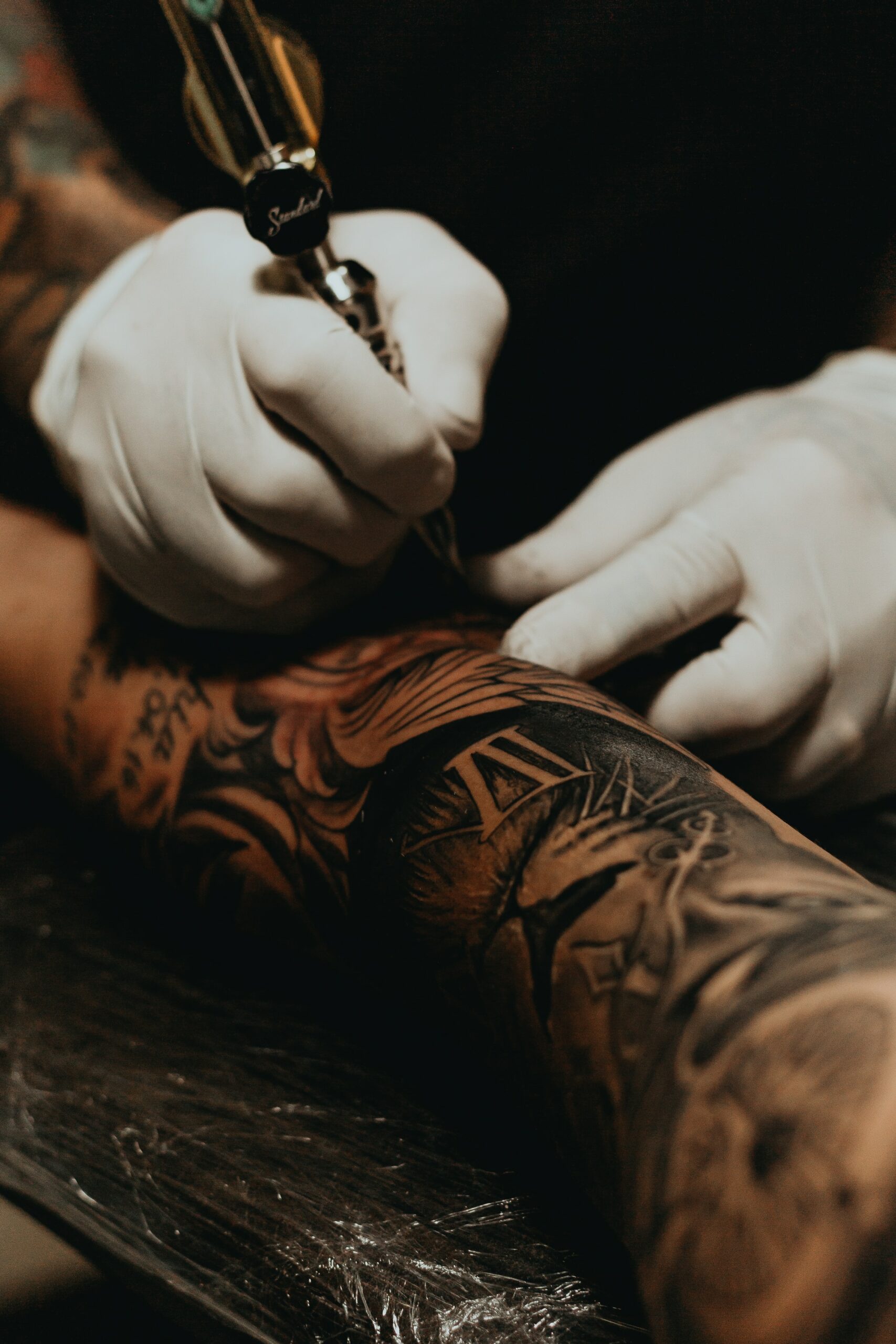“These cases make it clear that tattoo artists are increasingly demanding greater protection for their works and that the courts are at least receptive to the idea.”
 Tattoos have been around for millennia, but their popularity is increasing significantly. According to 2021 data, roughly 13% of Baby Boomers had at least one tattoo, compared to 32% of Generation X and 41% of Millennials. Other than disagreements about the appropriateness of visible tattoos in certain workplaces, tattoos generally cause few headaches for their owners, and certainly not legal headaches. That may no longer be the case, however, as tattoos become more common among celebrities and other high-profile individuals whose likenesses are commonly portrayed in digital media.
Tattoos have been around for millennia, but their popularity is increasing significantly. According to 2021 data, roughly 13% of Baby Boomers had at least one tattoo, compared to 32% of Generation X and 41% of Millennials. Other than disagreements about the appropriateness of visible tattoos in certain workplaces, tattoos generally cause few headaches for their owners, and certainly not legal headaches. That may no longer be the case, however, as tattoos become more common among celebrities and other high-profile individuals whose likenesses are commonly portrayed in digital media.
While there has been relatively little litigation concerning tattoo copyrights, 2023 could be the year that changes.
Alexander v. Take-Two Interactive Software, Inc., et al.
The watershed moment for a new era in tattoo copyright litigation came in 2022. In Alexander v. Take-Two Interactive Software, et al., tattoo artist Catherine Alexander sued the defendants in the U.S. District Court for the Southern District of Illinois, asserting copyright infringement arising from the defendant’s allegedly unauthorized use of her tattoo designs in their WWE 2K video game series.
Between 2002 and 2008, Alexander inked several tattoos on WWE professional wrestler Randy Orton that included tribal tattoos, a bible verse, a dove, a rose, and a skull. A digital recreation of Orton’s likeness, including Alexander’s tattoos, later appeared in Take-Two’s WWE 2K video game series. The creation of the digital likeness of Orton required no artistic input other than the recreation of a reference photograph. After unsuccessful attempts to negotiate a license, Alexander sued Take-Two, alleging unauthorized use of her original works.
Defendants presented the affirmative defenses of fair use, de minimus use, and implied license. In a partial summary judgment, the court found that Alexander owned valid copyrights for the tattoos at issue and that the defendants had copied her work. It rejected the defendants’ de minimus defense as unviable but found triable issues of fact as to the fair use and implied license defenses. Ultimately, only the fair use issue was presented to a jury.
In October 2022, the jury found that Take-Two had infringed Alexander’s copyrights, awarding her $3,750 in damages but denying lost profits. This makes Alexander’s case the first of its kind to reach trial, potentially opening the floodgates for future tattoo copyright litigation. And given the novelty of the issues presented, defendants are almost certain to appeal.
Hayden v. 2K Games, Inc., et al.
A remarkably similar case in the U.S. District Court for the Northern District of Ohio is presenting many of the same issues. In Hayden v. 2K Games, Inc., et al., tattoo artist James Hayden is suing video game publishers 2K Games and Take-Two Interactive Software for copyright infringement, alleging that the defendants’ use of his tattoo designs constitutes unauthorized use of his registered copyrights. Similar to the Alexander case, 2K Games’ products use digital reproductions of the likenesses of several NBA players, including their tattoos.
In their motion for summary judgment, the defendants argued the affirmative defenses of fair use, de minimus use, and implied license. Addressing the de minimus use defense, the court found that whether the tattoos are “observable” and whether the defendants’ replication diminishes the original works are questions for a jury. Turning to the fair use defense, the court found that, while the publication factor favored defendants, all fair use factors presented questions of fact. Similarly, the court found that whether the plaintiff intended to license third-party use of his tattoo designs was for a jury to decide.
The trial likely will commence in 2023.
A New Era for Tattoos in the Courts?
Both the Alexander and Hayden cases are notable departures from recent history.
In 2020, the U.S. District Court for the Southern District of New York reached the opposite conclusion of the Alexander and Hayden courts in a similar case. In Solid Oaks Sketches, LLC v. 2K Games, Inc., et al., the plaintiff tattoo licensing company argued that a video game publisher’s reproduction of basketball players with their real-life tattoos infringed its copyrights in its tattoo designs. There, the court granted the defendants’ motion for summary judgment, accepting all three of the defendants’ affirmative defenses of fair use, de minimus use, and implied license. While the court noted that the Second Circuit has not ruled on the exact circumstances under which an implied non-exclusive license can be found, it found one here because the players requested the creation of the tattoos, the tattooists inked the designs on their skin, and the tattooists knew that the players were likely to appear in media.
These cases make it clear that tattoo artists are increasingly demanding greater protection for their works and that the courts are at least receptive to the idea.
Image Source: Unsplash
Photo by Allef Vinicius

![[IPWatchdog Logo]](https://ipwatchdog.com/wp-content/themes/IPWatchdog%20-%202023/assets/images/temp/logo-small@2x.png)

![[Advertisement]](https://ipwatchdog.com/wp-content/uploads/2024/04/Patent-Litigation-Masters-2024-sidebar-early-bird-ends-Apr-21-last-chance-700x500-1.jpg)

![[Advertisement]](https://ipwatchdog.com/wp-content/uploads/2021/12/WEBINAR-336-x-280-px.png)
![[Advertisement]](https://ipwatchdog.com/wp-content/uploads/2021/12/2021-Patent-Practice-on-Demand-recorded-Feb-2021-336-x-280.jpg)
![[Advertisement]](https://ipwatchdog.com/wp-content/uploads/2021/12/Ad-4-The-Invent-Patent-System™.png)







Join the Discussion
One comment so far.
David Lewis
January 8, 2023 03:37 pmI can’t imagine the damages award ( $3,750) paying for the legal fees so as to make the appeal worth while?